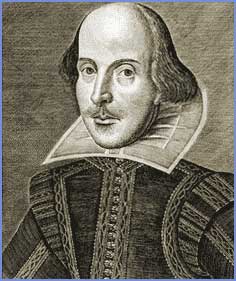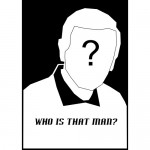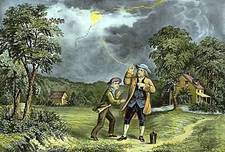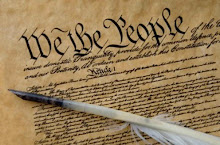Ann wrote:
James Shapiro wrote, on October 16, this in his Op-Ed column,
Hollywood Dishonors the Bard about Roland Emmerich's movie:
On 23 July 1567 the seventeen-year-old Oxford killed Thomas Brincknell, an under-cook in the Cecil household
Amazing, eh? We are apparently inside a 16th century version of Oedipus Rex, where Edward "Oedipus" de Vere beds his own mother the Queen and kills his own father the under-cook in the Cecil household!!!



Sounds sorta familiar though

:
--------------------------------------------------------
_____________ Hamlet > Act IV, scene I
KING CLAUDIUS: What, Gertrude? How does Hamlet?
QUEEN GERTRUDE: Mad as the sea and wind, when both contend
__ Which is the mightier: in his lawless fit,
__ Behind the arras hearing something stir,
__ Whips out his rapier, cries, 'A rat, a rat!'
__ And, in this brainish apprehension, kills
__ The unseen good old man.
----------------------------------------------------------
. Is Shakespeare Dead - Mark Twain ** ( CHAPTER III )
.
He was born on the 23d of April, 1564.
.
Of good farmer-class parents who could not read,
could not write, could not sign their names.
.
At Stratford, a small back settlement which in that day
was shabby & unclean, and densely illiterate. Of the
19 important men charged with the government of the town,
13 had to "make their mark" in attesting important documents,
because they could not write their names.
.
Of the first 18 years of his life NOTHING is known.
They are a blank.
.
On the 27th of November (1582) William Shakespeare
took out a license to marry Anne
WHATEley.
.
Next day William Shakespeare took out a license to
marry Anne Hathaway. She was eight years his senior.
------------------------------------------------------
<<
There is an old English word *WHATE* ,
. meaning *FORTUNE, FATE, or DESTINY*,
. I think that in a desperate moment of inspiration,
. confused before the clerk, Shakespeare reached
. into his heart and came out with the name of that Anne
. who would have been his choice, his FATE, his DESTINY.>>
.
. - _The Late Mr. Shakespeare_ by Robert Nye
------------------------------------------------------
*WHATE-LEY* : the impost of fortune, *FATE, or DESTINY*
*FATA* : (Latin) *FATE, or DESTINY*
---------------------------------------------------------
The lines below the 1640 Marshall image of
William Shakespeare are as follows:
This Shadow is renowned Shakespear's? Soule of th' age
The applause? Delight? The wonder of the Stage.
Nature her selfe, was proud of his designs
{A}nd joy'd to weare the dressing of his lines,
{T}he learned will confess his works as such
{A}s neither man, nor Muse can praise to much
{F}or *EVER live thy FAME* , the world to tell,
Thy like, no age, shall *EVER* paralell
- John WeEVER's Epigrammes
in the Oldest Cut and Newest Fashion
--------------------------------------------------
. [ON *
POET-APE* ] EPIGRAMS by Ben Jonson
.
Poor *
POET-APE* , that would be thought our chief,
____ Whose works are e'en the frippery of wit,
{F}rom brokage is become so bold a thief,
____ As we, the robb'd, leave rage, and pity it.
{A}t first he made low shifts, would pick and glean,
____ Buy the rEVERsion of old plays ; now grown
{T}o a little wealth, and credit in the scene,
____ He takes up all, makes each man's wit his own :
{A}nd, told of this, he slights it. Tut, such crimes
____ The sluggish gaping auditor devours ;
. He marks not whose 'twas first : and after-times
____ May judge it to be his, as well as ours.
________ Fool ! as if half eyes will not know a fleece
________ From locks of wool, or shreds from the whole piece ?
-------------------------------------------------------------------------------
. Lady Clara Vere de Vere (1842) - Alfred Lord Tennyson
KIND HEARTS ARE MORE THAN CORONETS,
And simple faith than Norman blood.
.........................................................
(Earls wore *CORONETS* rather than CROWNS.)
.........................................................
QUEEN GERTRUDE: There, on the pendent boughs her *CORONET* weeds
. Clambring to hang, an *ENVIOU(s) SLIVER* broke...
.........................................................
______ *ENVIOU(s) SLIVER*
______ *NIL VE(r)O VERIUS* - Oxford Motto
----------------------------------------------
______ *NIL VERO-VERIU(s) POET*
______ *OUR EVER-LIVIN(g) POET* - Sonnets Dedication
------------------------------------------
http://www.philological.bham.ac.uk/anagrams/text.html
____
*EDOUARUS V(e)IERUS*
_____ per anagramma
____
*AURE SUR(d)US VIDEO*
.
{A}uribus hisce licet studio, Fortuna, susurros
{PE}rfidiae et technas efficis esse procul,
. Attamen accipio (quae mens horrescit et auris)
. Rebus facta malis corpora surda tenus.
. Imo etiam cerno Catilinae¶ fraude propinquos
. Funere solventes
*FATA* aliena suo.
.............................................
_______
*EDWARD VERE*
______ by an anagram
____
*DEAF IN MY EAR, I SEE*
Though by your zeal, FORTUNE, you keep perfidy's
murmurs & schemings at a distance, nonetheless I learn
(at which my mind & ear quake) that our bodies have
been deafened with respect to evil affairs. Indeed,
I perceive men who come close to Catiline* in deception,
freeing other men's
*FATES* by their death.
.
¶ Catiline was the rabble-rouser suppressed by Cicero.
His name became a watchword for incendiary troublemakers.>>
-------------------------------------------------------
<<On the titlepage of the first edition
. of Venus & Adonis is the Ovidian phrase
.
.
*Vilia miretur vulgus* ... "
.
or, "allow the public to admire that which is sordid.">>
. - Rowse, A.L. ed., The Annotated Shakespeare, 1984.
....................................................
. . P. Ovidius Naso, Amores
http://www.thelatinlibrary.com/ovid/ovid.amor1.shtml
.
XV
*Vilia miretur vulgus* ; mihi flavus Apollo+
. Pocula Castalia plena ministret aqua,
. Sustineamque coma metuentem frigora myrtum,
. Atque a sollicito multus amante legar!
. Pascitur in vivis Livor; post
*FATA* quiescit+,
. Cum suus ex merito quemque tuetur honos.
. Ergo etiam cum me supremus adederit ignis++,
. Vivam, parsque mei multa superstes erit.
.
. . Marlowe translation:
.
. Let base conceited wits admire vilde things,
. *FAIRE* Phoebus leade me to the Muses springs.
. About my head be QUIVERING Mirtle wound,
. And in sad lovers heads let me be found.
. The living, not the dead can ENVIE bite,
. For after death all men receive their right:
. Then though death rackes my bones in funerall fler,
. lie live, and as he puls me downe, mount higher
------------------------------------

















